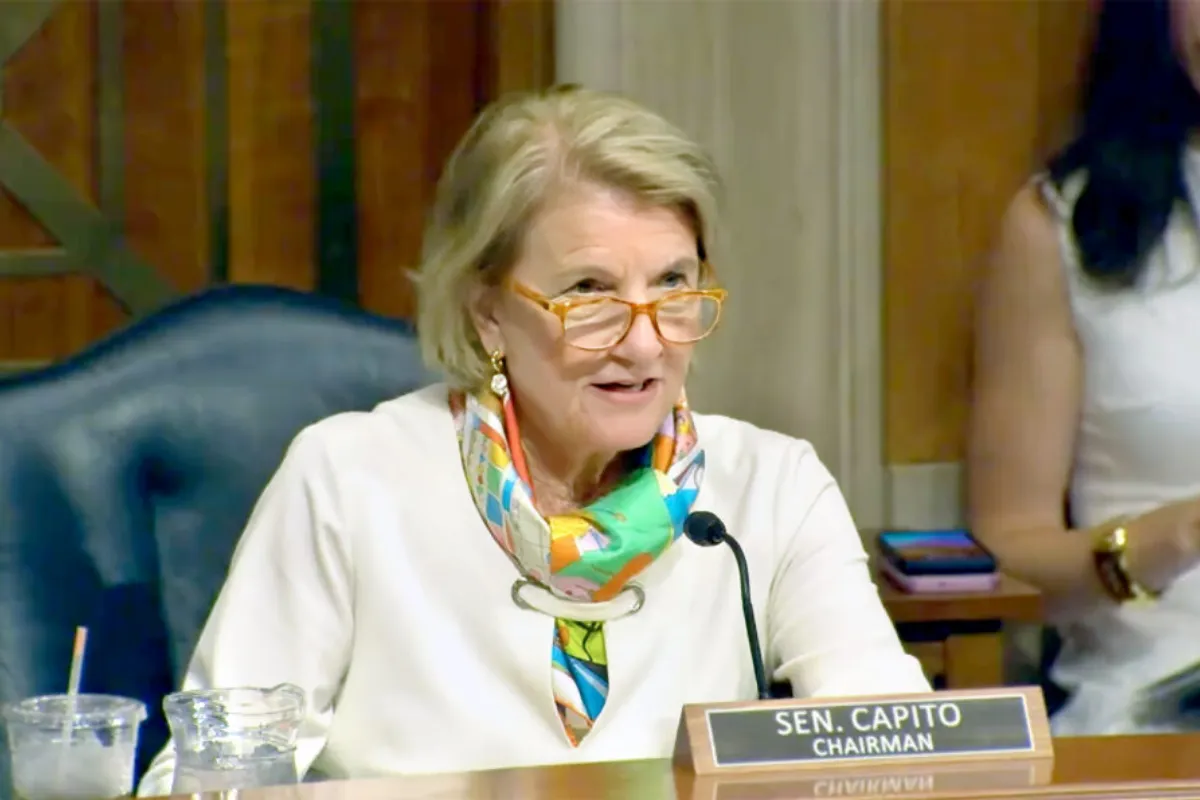As the Senate inches closer to a key vote on the One Big Beautiful Bill Act, U.S. Senator Shelley Moore Capito has released revised environmental provisions following objections from the Senate parliamentarian.
The changes come as pressure mounts over controversial cuts to Medicaid and the Supplemental Nutrition Assistance Program (SNAP), which critics say could seriously impact vulnerable communities in West Virginia and beyond.
Capito, who chairs the Senate Environment and Public Works (EPW) Committee, rolled out updated legislative text on Wednesday. The revised version removes and modifies several proposals that had previously been struck down for violating Senate rules governing the budget reconciliation process, known as the Byrd Rule.
“Our budget reconciliation title accomplishes what we pledged to do – stop Democrats’ natural gas tax, repeal the wasteful Greenhouse Gas Reduction Fund, and claw back unused Inflation Reduction Act dollars,” said Capito, R-W.Va. “We’re helping push forward President Trump’s agenda with this bill.”
Environmental Rollbacks Revised
The committee’s updated proposal pulls back unspent funds from the Inflation Reduction Act (IRA) that were earmarked for clean transportation, emissions reductions, and environmental data programs.
It also includes a 10-year pause on the IRA’s methane tax, and proposes an opt-in fee program under the National Environmental Policy Act (NEPA) to speed up environmental reviews for certain projects.
One previously rejected item—an attempt to exempt expedited NEPA projects from court challenges—has now been removed entirely.
Another, aimed at revoking the Biden administration’s tailpipe emissions rule, was softened. The updated bill now only cuts enforcement funding for that rule, rather than eliminating it.
Surprisingly, the package also includes $257 million for the Kennedy Center in Washington, D.C., earmarked for maintenance and restoration.
The Kennedy Center, whose board was completely replaced by Trump appointees during his presidency, has drawn criticism and attention from both sides of the aisle.
Political Pressure Builds Over Health Care and Food Aid
While Republicans are rallying around tax cuts and environmental deregulation, many are voicing concern over the bill’s potential harm to social safety net programs, including Medicaid and SNAP.
Groups like the West Virginia Hospital Association (WVHA) are raising red flags. WVHA President Jim Kaufman said hospital CEOs personally traveled to Washington this week to stress how cuts to Medicaid could destabilize rural hospitals and limit care for low-income patients.
“Medicaid funding is absolutely critical to maintaining access to care for our most vulnerable residents,” Kaufman said. “The stakes are simply too high.”
More than 29% of West Virginians are enrolled in Medicaid, including over half of the state’s children. With proposed changes looming, many fear patients will lose coverage and rural healthcare systems will suffer.
At the same time, SNAP changes in the bill could hit West Virginia’s budget hard. By 2028, the state could be on the hook for $85 million in SNAP funding due to shifting federal responsibilities. The bill also proposes tougher work requirements, potentially disqualifying thousands of residents from receiving food assistance.
Food banks, including the Mountaineer Food Bank, are sounding alarms about increased food insecurity if these changes move forward.
The Path Forward
The One Big Beautiful Bill Act narrowly passed the U.S. House in May by a 215–214–1 vote and is now under Senate review through reconciliation, a process that avoids a filibuster but requires strict rules compliance. Lawmakers have set a self-imposed July 4 deadline to get the bill passed—but with pushback from hospitals, advocacy groups, and even some Republicans, it remains uncertain whether the legislation will reach the finish line on time.
Despite the hurdles, Capito remains committed to getting the bill through. “There’s still work to do,” she said, “but this is a critical step toward reducing wasteful spending and delivering relief to West Virginia families.”
As the Senate prepares to vote, all eyes are on how lawmakers will address growing public concern—particularly around healthcare, food security, and the fate of rural communities.
















